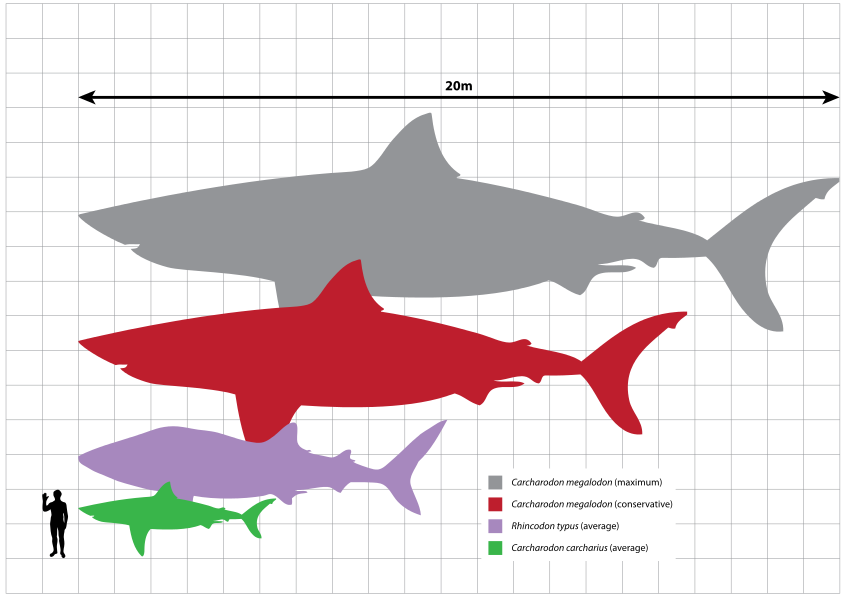Sharks are a group of elasmobranch fish characterized by a cartilaginous skeleton, five to seven gill slits on the sides of the head, and pectoral fins that are not fused to the head. Modern sharks are classified within the clade Selachimorpha (or Selachii) and are the sister group to the rays. However, the term "shark" has also been used for extinct members of the subclass Elasmobranchii outside the Selachimorpha, such as Cladoselache and Xenacanthus, as well as other Chondrichthyes such as the holocephalid eugenedontidans.

Sharks

Under this broader definition, the earliest known sharks date back to more than 420 million years ago. Since then, sharks have diversified into over 500 species. They range in size from the small dwarf lanternshark (Etmopterus perryi), a deep sea species of only 17 centimetres (6.7 in) in length, to the whale shark (Rhincodon typus), the largest fish in the world, which reaches approximately 12 metres (40 ft) in length. Sharks are found in all seas and are common to depths of 2,000 metres (6,600 ft). They generally do not live in freshwater although there are a few known exceptions, such as the bull shark and the river shark, which can survive and be found in both seawater and freshwater.
Sharks in captivity-Until recently only a few benthic species of shark, such as hornsharks, leopard sharks, catsharks, and zebra sharks, had survived in aquarium conditions for up to a year or more. This gave rise to the belief that sharks, as well as being difficult to capture and transport, were difficult to care for. A better knowledge of sharks has led to more species (including the large pelagic sharks) being able to be kept for far longer. At the same time, transportation techniques have improved and long distance movement of sharks is becoming easier.

Hammerhead Sharks
Dusky Sharks
Bull Sharks
Thresher Sharks
Horned Sharks
Thresher Sharks



.png?crc=4187891543)